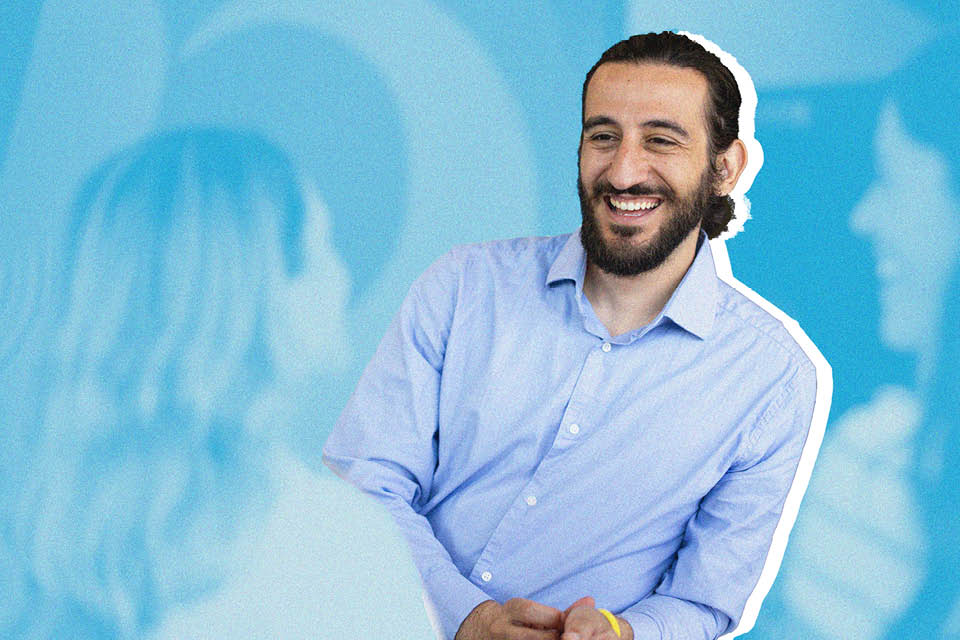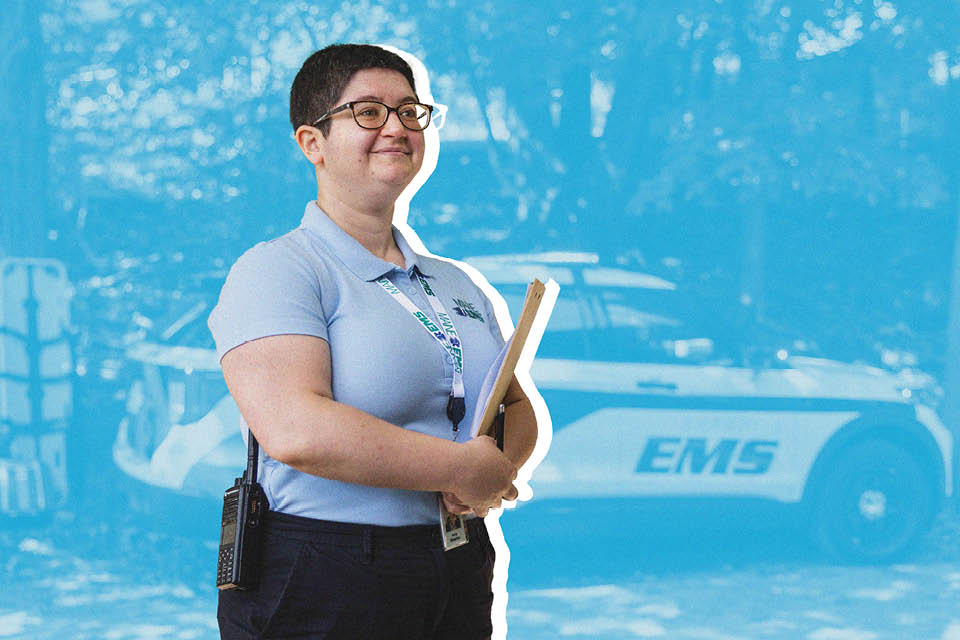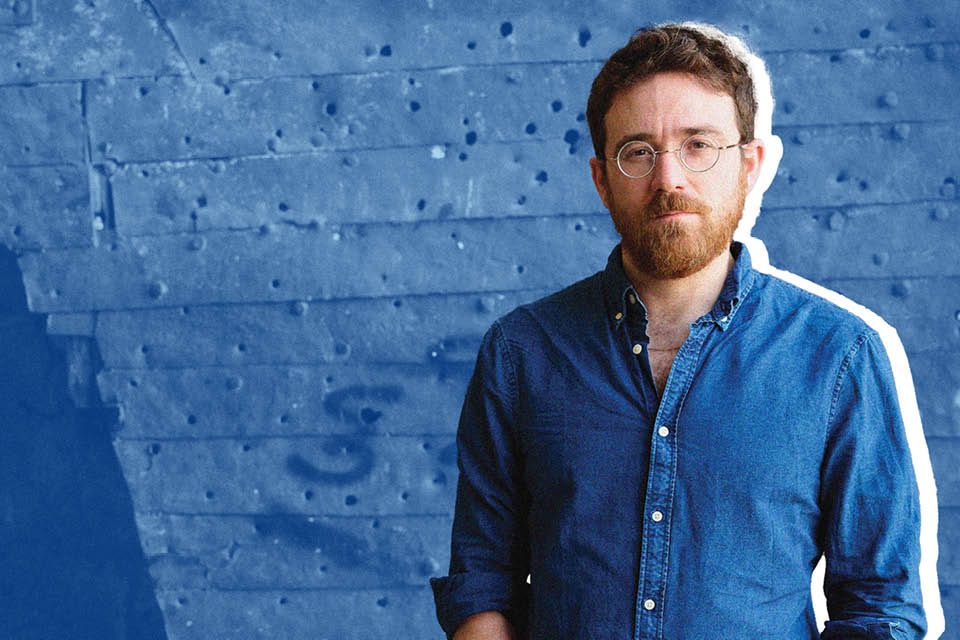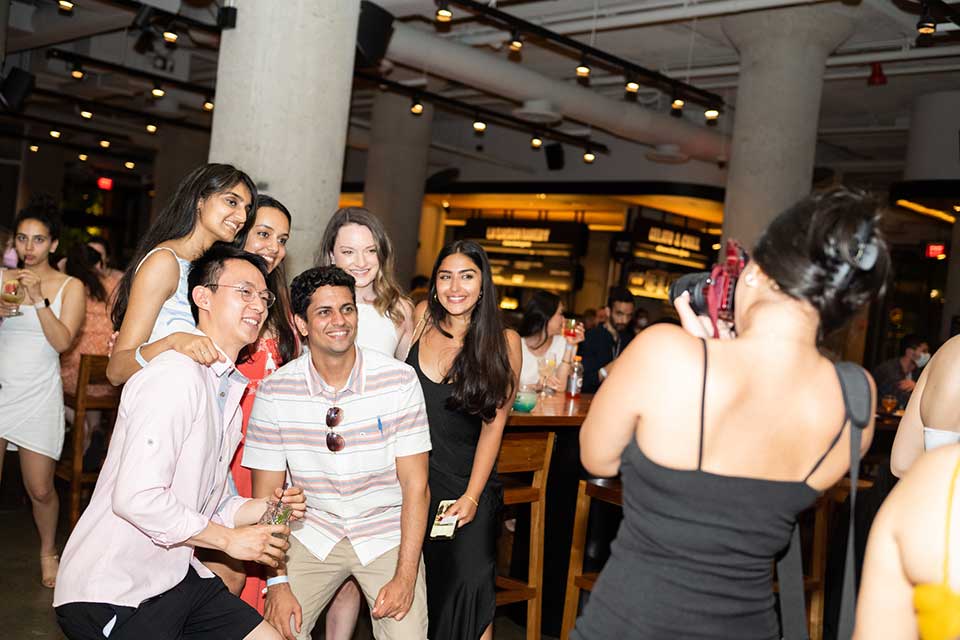Brandeis Alumni, Family and Friends
Eric Moyal ’17, MA’18, MS’22, is fighting the high cost of insulin
Moyal is one of three alumni who have graduated in the last ten years who are being honored as a BOLD Rising Star.

Eric Moyal ’17, MA’18, MS’22, is on a mission to rein in the exorbitant cost of insulin.
Currently, more than a million people who rely on insulin, which is essential to the treatment of diabetes, ration their supply. That means they take less than they need because they simply can’t afford it.
In 2022, Moyal founded the nonprofit Project Insulin to combat this problem by creating a generic insulin to be sold at cost to patients, regardless of their insurance status.
For this work, the Alumni Association has named Moyal a 2024 BOLD Rising Star. The award recognizes young alumni – BOLD is short for “Brandeisians of the Last Decade” – who are already leaving their mark in their chosen field.
Can you explain the scope of the problem Project Insulin seeks to solve?
So currently more than 8 million people in the United States use insulin, and about 1.3 million ration their monthly supply, which means they don't take as much as they need. This leads to long-term lasting effects on their bodies, their health, and on their families. In addition, there are many others who have to sacrifice things like higher education, food, and even career opportunities, because they can't afford their insurance, or to pay for both the high price of insulin and for these other things.
How is Project Insulin addressing the problem?
By addressing unaffordability and inaccessibility. We’re creating our own insulin, which we can sell at whatever price we want. All of our competitors are for-profit organizations, and they have a fiduciary duty to make as much money as they can for their shareholders. As a nonprofit, we don't have that kind of pressure. By being vertically integrated, we’ll cut out the many middlemen organizations, like wholesalers, who help drive up the costs. We'll also be partnering with federal and local healthcare clinics around the country to distribute the insulin directly to where patients are already going.
What inspired you to address this particular problem?
My little sister has a rare chronic illness (Complex Regional Pain Syndrome), and I've been raising money and awareness for that illness for years now. Over time, though, I realized that fundraising isn't the main issue with her illness. There's still a lot of scientific research that needs to be done, there are no treatments or cures yet for her illness. So I didn't feel like I was having as much of a tangible impact as I wanted. Then in 2020, I met my partner who has Type-1 diabetes, and she told me about insulin and how expensive it is. I realized that making insulin affordable is not a scientific problem but a money problem, and as a professional fundraiser, I can solve a money problem.
What are some of your biggest achievements to date?
They vary relative to where we’ve been and where we are now. Getting our 501(c)(3) nonprofit status was a really big achievement. But every chapter has felt significant. We first launched Project Insulin in a Brandeis incubator called Spark Tank – which provides pilot funding for social-minded projects – and we won $2,500 there. We've since had various $50,000 grants come in, each one more exciting than the last. And it’s been amazing fielding proposals from drug developers who want to help. That was really important to us, as it provided us with validation from the life sciences/pharma community. And something I’m really proud of is just how many people have helped: volunteers, mentors, advisors, patients doing informational interviews.
What on the horizon are you most excited about?
In the next few months , we will start drug development, which is monumental for us. For the last two and a half years, we’ve been learning about drug development, about insulin, and supply issues in the U.S. and abroad. We’ve learned who the players are, and who could potentially help us develop our insulin. Getting to the point where we can actually create insulin – so we're no longer just talking about it, but doing it – that's what we're most excited about in the near future.









